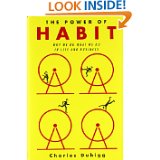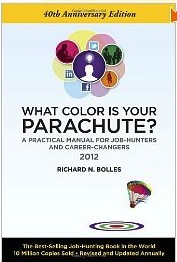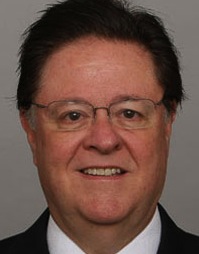We Are All Dishonest
October 30, 2012
What’s Going On in Your Brain
September 21, 2012
I finished more books on the brain over the last few weeks. Actually I finished three, but my friends tell me one doesn’t count. You can decide for yourself.
I won’t pretend to give them all thorough reviews, but I will make a brief comment on each. I think they are all worth reading of you want some insight into what’s going on in your mind as you wander through life.
Charles Duhigg’s “The Power of Habit,” was interesting for the first 125 pages (out of 290). He does a great job explaining how habits develop, but he leaves the specifics about what to do about it until the appendix. He offers a general theory and solution but he stops just short of a full answer. He uses his own habit as an example of how to break a habit. For my money that’s why people buy the book. A good part of the rest of the book was really marketing advice, and while it was interesting, I’m not sure it was ‘on point,’ as they say.
Lawrence Rosenblum’s “See What I’m Saying,” is a great look at neuroplasticity – the brain’s capacity to expand the functionality in one area, to make up for deficits in others. Rosenblum is a psychologist and researcher, not a writer, so his style is exactly the opposite of Duhigg. Where Duhigg is light and easy to read, Rosenblum can be a bit more theoritical or professorial. There’s nothing wrong with it, but you have to work much harder to find the nuggets. But his explanation of how hearing makes up for lost eyesight, or how touch and taste and smell can evolve, to help out when other senses are lost is fascinating.
Where Duhigg is light and easy to read, Rosenblum can be a bit more theoritical or professorial. There’s nothing wrong with it, but you have to work much harder to find the nuggets. But his explanation of how hearing makes up for lost eyesight, or how touch and taste and smell can evolve, to help out when other senses are lost is fascinating.
I also recently read Jonah Lehrer’s “Imagine,” and while I don’t condone his creative quotes from Bob Dylan, he does make some interesting points about the creative process. A good friend of mine told me , “you can never know what he’s making up.” Which is is quite valid – particularly for a journalist.  Maybe I’m just reflecting my own cognitive dissonance -believing what I want to believe – but I don’t think anyone could conjure all the situations and theories he presents out of nothing. In that vein, I’ve decided not to ask Amazon for my money back, even though they offered.
Maybe I’m just reflecting my own cognitive dissonance -believing what I want to believe – but I don’t think anyone could conjure all the situations and theories he presents out of nothing. In that vein, I’ve decided not to ask Amazon for my money back, even though they offered.
Shuttle Comes to the Bay Area
Endeavour, on its way to Los Angeles, made a few trips around the Bay Area. One was just about over our home. I don’t think any other explanation is needed.
NFL PR Machine
August 30, 2012
I’m sure John York, Co-chairman of the San Francisco 49ers did not see his
presentation last night at the Commonwealth Club, as part of an NFL public relations roadshow, but that’s what it was.
Dr. York, who appeared with former NFL star Dan Fouts and San Diego trauma surgeon A. Brent Eastman, M.D. , was on hand to address traumatic injuries in the NFL. As head of the league’s Health and Safety Advisory Committee, his job was apparently to convince the crowd on hand that for the last 30 years the league has only had the best interests of its players in mind.
While this flies in the face of reality, particularly since over 2,000 former players are currently suing the league to seek compensation for their injuries, Dr. York insisted that the well being of the players has always been the highest priority.
Fouts was on hand to lend support with his litany of injuries, from pulled muscles
to a broken foot, back, shoulder and hand, many of which were blamed on late hits, which would not have been tolerated in today’s game. The real question might be, why were they tolerated then – when Fouts led the SanDiego Chargers in the 1980’s.
The Hall of Fame quarterback described his injuries in great detail, naming ‘assailants’ in most cases, but expressed clear disdain for the new rules implying that what current 49er quarterback Alex Smith plays is not really football anymore. Presumably because he has only missed two seasons to injuries and is still able to walk.
Fouts, along with his friend and surgeon, Dr. Eastman seemed to contradict himself, when he supported Dr. York’s contention that the game was better off with the new rules.
York denied there was any pressure on team doctors to get players back into the game quickly, saying he knew that was the policy on the 49ers, although he could not vouch for the rest of the league. Fouts told stories of being pushed back into action despite injury, which York claimed would never happen today.
It’s not a question of a team owner calling the team doctor to apply pressure, the doctor does it on his own, beacause he knows who signs his paycheck.
This is particularly true with head injuries and concussions. These injuries have only been addressed in the last few years when the NFL finally stopped relying on a discredited medical expert who claimed that head injuries and long term brain damage were not related. Dr. York says the issue is now being researched – most likely to buttress the League’s court defense .
The panelists may have convinced themselves but I remain skeptical, particularly since the NFL has been forced to make changes by lawsuits and owners who saw major hits to their bottom line when marquee players were out with season-ending injuries.
My Father’s Day
June 14, 2012
This weekend’s holiday will have a bit more meaning for me. It will be my first without Dad.
But I thought I’d post a few memories.
It’s Been A While
February 3, 2012
It’s been a while since my last post.
I’ve been inundated with non-mail, and since no-one asked I’ll just let you that while the blogosphere apparently hasn’t missed me, I’ll offer an excuse anyway.
My Dad passed away at the end of October. I was 6,000 miles away from him at the time and quite frankly, I just haven’t felt like writing anything for a while.
I’ve mentioned my Dad several times in postings, both for his use iPads and iPhones at 91 and just because, he was my dad and influenced everything I wrote in some way.
He led a remarkable life as part of ‘The Greatest Generation,’ and in future posts I’ll tell you more, but for now I just wanted to let any faithful readers know where I’ve been and at least start down the road to more regular contributions again.
Thanks for your understanding and since I try to focus on management tips I will offer one bit of advice. If you are a manager and an employee loses someone close to them, keep in mind that the impact can last much longer than just the immediate aftermath of the funeral.
In some cases it can take years before productivity returns to normal.
What Color IS your Parachute? – A Review
October 24, 2011
Dick Bolles, or Richard Nelson Bolles- as many folks know him, has been writing his ‘Parachute’ books on career development for 40 years. The latest edition of his signature series continues to be a must-read for anyone looking for a new career or the thousands of career specialists who have followed in Bolles’ footsteps.
You might think that, at 84, the internet or current events might have passed Bolles by, but his 2012 “What Color is My Parachute,’ is up-to date and filled with the same kind of useful information contained in the other 39 versions. In addition to the links I was particularly impressed with his comments about the Microsoft purchase of Skype and what it might mean for distance coaching.
You may not agree with everything he says or suggests, but he lays out sound guidance on everything from finding your mission to negotiating pay.
What you won’t find is any reference to parachutes or colors- a burden that Bolles has been saddled with, since the title of his book was first suggested. When I met Bolles recently he was careful to explain where the phrase came from – an offhand remark he once made about some Episcopal ministers who were going to be out of jobs soon – and that it really has no relationship to his lifelong work.
Bolles uses the tried and true techniques he discovered by accident 40 years ago and combines them now with web resources to create a modern tool for job hunting. His links and references, which are also available on his website, are well worth the price of the book.
They key component of his work is the self-inventory ‘Flower Exercise’ that he suggests everyone use to both define their job search and their skill set. The reality is that you don’t have to wait until you need to look for a job to use the exercise since everyone should probably do this kind of self assessment on a regular basis.
Starting the search for a new job does not just occur when you are out of work but can happen any time.
Bolles writes in a simple, folksy style that is easy to understand and very clear. There is no professional gibberish or double-speak that many professionals like to use. It’s just information, suggestions, strategies and real world common sense.
You may not use everything, but it can be a helpful foundation for self exploration as well as practical tips for interviewing and research. I have some issues with his suggestions for trying to research jobs by setting up informational interviews. I don’t think it’s as easy to do as he suggests but I would never suggest that you shouldn’t try.
Bolles, a former Episcopal minister, makes no secret of his faith and its role in his life and career. He makes no apologies, but tries to limit his faith-based approach to the ‘Pink Pages’ in the appendix but it doesn’t detract from his advice and the usefulness of the book.
Bolles also offers advice for career coaches. In fact it seems at times that his book is directed at coaches and not just the average job hunter. But in my mind that just makes it more useful. His suggestions for finding a coach are important no matter what side of the equation you are on.
One note: I bought the e-book version of the book and while it makes it much easier to get directly to the many links listed, it has made a mess of the charts and graphics. Having read other e-books I know this does not have to be the case, but it’s unfortunate. I hope it will corrected, but I plan to purchase a printed edition anyway.
In short, not matter what version you buy, read the book and you’ll be much closer to a successful career.
Forty Years of Parachutes
September 20, 2011
At 84, you might think that Richard Bolles was ready to slow down. But the author of the seminal career coaching guide, “What Color is Your Parachute,” says that after 40 years of updating his work he has no intention of stopping.
Speaking at a recent meeting of the East Bay Coaches Chapter, Bolles left no doubt he has plenty of new ideas and that his books are still relevant as United States suffers through the worst recession in 60 years.
In an hour-long presentation that ranged from the humble beginnings of his book and career, to comments on modern politics he offered lessons on attitude, re-framing and relevance. Proving that he deserves the honor of the nation’s career coach.
He urged members to understand their own needs and experiences as a way to empathize with their clients. “What else do we live for? he asked, “than to use our experiences to help others?”
 He suggested that coaches need to point out to their clients, depressed about lengthening unemployment, that despite the monthly numbers, there are still 6 million people who change jobs every month. “It’s all about attitude,” he told the group. Pointing out that if you think you won’t get the job you probably won’t. “Your job is to help your client be one of those 6 million.”
He suggested that coaches need to point out to their clients, depressed about lengthening unemployment, that despite the monthly numbers, there are still 6 million people who change jobs every month. “It’s all about attitude,” he told the group. Pointing out that if you think you won’t get the job you probably won’t. “Your job is to help your client be one of those 6 million.”
“Looking for a new job is now a survival skill, and we have to look at it that way,” he says. “just like food, clothing, or shelter.”
He says that while times have changed the basic dichotomy of how people look for jobs and how employers look for employees has stayed the same. “Employers just want to avoid mistakes, but potential employees still think that sending out millions of resumes will get them noticed. It won’t.”
Bolles has updated his “Parachute” books every year, except 1975, since it was first published in 1970. He includes a coaches appendix in the back but insists that, “people need to keep up. they have to have read my current edition, if they want to be included.”
Bolles, who lives in Danville, California, also had some pointed words for politicians, who he sees as short sighted as they cut back on the support system that US job seekers need, but more importantly he bemoans the lack of empathy he sees in Washington.
“I can’t believe that politicians and their supporters are cheering at the thought of people without health care, or the number of executions in a state.” he notes. Bolles says he has voted for both democrats and republicans, but adds, “this GOP is not mine, their only goal is to make sure Obama is a one-term President, so they can get his job.”
Bolles has been proclaimed “America’s Top Career Expert” and his books have been called among the most important of the last 80 years. But he says he plans to continue writing, holding workshops, and lecturing. “I’ll be updating my books,” he says “until I’m forced to say goodbye to my lovely wife.”
Finding a New Job-the Easy Way
September 19, 2011
I met a woman over the weekend who is starting a new job. In today’s economy that’s probably enough news for a feature story.
Since I’ve done my share of career counseling, I thought I would just chat with her for a few minutes and get some hard evidence that the suggestions I give people, really work.
I asked what skills she had that were transferable. Both of the jobs involve working with the public, but in much different ways. In her old job she was the office manager in a cemetery. In the new job she would be a public safety dispatcher. Other than dealing with people under stress I couldn’t find much in common.
Well, I suggested, maybe your networking paid off and you knew someone at the new company. “No,” she said, “I just saw the job advertised and applied. It was much closer to my home.”
Well, you must have certainly analyzed the job market and picked a field with opportunity. “No,” she reported, “I just wanted to do something different.” The fact that her new job is in the public sector, and was actually hiring, was a shock to both of us.
I continued to pepper her with questions about interview techniques, networking and the color of her parachute – all the sorts of questions I was sure would lead to some insight on how she used some valuable tidbit that would prove my techniques work.
Nice try Mr. Professional – this woman did it her way and it worked. She saw the job in the help wanted section, thought it would be interesting, applied, interviewed and was hired. Call the President, his new jobs bill is working!!
She was as amazed as me. She was just the right person, at the right time and she got the job. I guess that’s all you really need. Congratulations.
Can This be Right?
August 31, 2011
During a recent coaching session, my client, gave me a copy of her most recent performance review saying, “I need help fixing this.”
While she was rated exceptional in several areas, her supervisor said that her employees found her “curt, and abrasive” and they felt unappreciated. She runs a group of about 20 in a facility with about 100 employees. They have a matrix organizational chart so each person may have responsibilities to several managers.
She said that she had asked her supervisor for specific examples he could not provide any.
To say she was perplexed was an understatement, especially since this was the first time in 4 years, she had gotten this kind of feedback.
At first, we discussed how managers are often not the best judges of their own performance, and then I asked if she could think of any instances that might have led to the criticism. She could only cite one fellow manager who she admitted she had “issues” with, but said she had never heard any of her group even mumble anything about her management style. (NB: She holds weekly status meetings with the whole group and meets regularly with direct reports.)
She admitted she was very confident and could be blunt but she didn’t sense any problems.
We went through her daily and weekly routines. I tried to help her analyze her interpersonal contacts, and offered some suggestions about how she might make some changes, but I had to admit, I was a bit perplexed.
After spending a number of hours with her, and reviewing how her department worked and her interactions, I couldn’t figure out what her boss was getting at either. She is direct, but after 4 years, with minimal turnover, employees usually come to understand a manager’s communication style and adapt to it.
We even spent some time exploring whether she was miscast as a mid-level manager and was more suited for another role outside the company.
As we talked, over several sessions, I could not find any patterns in her presentation that was anything but professional, knowledgeable, confident and caring. She didn’t strike me as the kind of pathological, egotistical boss that fills the pages of most management textbooks.
She wasn’t familiar with many of the terms of Emotional Intelligence, but she seemed to have a good sense of the tools and was already using some.
In the end, I tried to assure her that she was on the right track and while she could make some changes in listening and trying to be attuned to the needs of her staff, maybe the best option was to just assume her boss was basing his critique on bad information, or on a single example. Possibly, he was just wrong or more euphemistically, ‘ill-informed.’
Three weeks later, she learned he was being eased out of his position, so maybe, there was something else going on.
The lesson: I would never ignore what’s on your performance review, but if it doesn’t ring true, you may need to question some of the underlying assumptions and decide for yourself if changes are warranted.









